What Is Feng Shui?
The philosophy of feng shui is a practice of arranging the pieces in living spaces in order to create balance with the natural world. The goal is to harness energy forces and establish harmony between an individual and their environment. In this article, Pritish Kumar Halder gives you a brief idea about Feng shui.
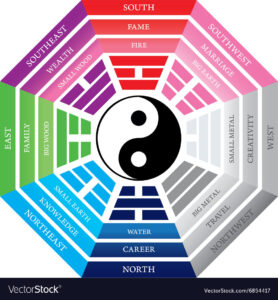
The Chinese words “feng” and “shui” translate to mean “wind” and “water,” respectively. This concept derived from an ancient poem that talks about human life being connected and flowing with the environment around it.
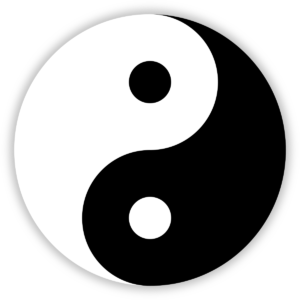
Ying and Yang symbol
In Asian culture, this philosophy is called the Tao, which translates to mean “the way.” Taoism is the way of nature and all the basic principles of feng shui reflect nature.
Take a look at the essential principles of feng shui: the commanding position, the bagua, and the five elements.
The Commanding Position
The commanding position is the spot in a room that is the furthest from the door and not in direct line with it. It puts your diagonal to the door. Ideally, you should have a clear line of sight to the door. The commanding position is where you want to spend most of your time when you are in that room. Feng shui guidelines suggest you determine this dominant position in the room, then place your bed, your desk, or your stove in diagonal alignment, if you can.
3 parts of feng shui
These three parts of your house are critical since each represents an essential part of your life. The bed stands for you, the desk is an extension of your career, and the stove represents your wealth and nourishment.
The Feng Shui Bagua Map
A bagua is the feng shui energy map superimposed on the floor plan of your home. The Chinese word “bagua” translates to mean “eight areas.” Each of the eight areas relates to a different life circumstance, such as family, wealth, or career. And, each of these areas has corresponding shapes, colors, seasons, number, and earthly elements. At the center of the bagua—a ninth area—is you, representing your overall wellness.
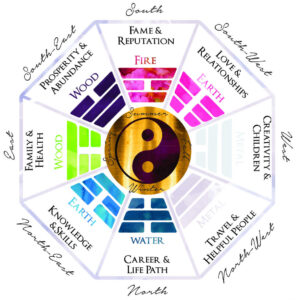
The Feng Shui Bagua map
Scientific reasons of Bagua
There are several feng shui schools of thought. All of them use baguas when analyzing your home; however, some may apply the bagua in different ways. The Western and BTB (Black Sect) schools usually lay the bagua so that the knowledge, career, and helpful people areas align with the front door of the home. The Flying Stars and other classical schools may orient the bagua based on the energy of the year or the compass.
Colors
The bagua map can help you determine what colors to bring into a space. For example, says Carrano, the “Wealth and Abundance” area of your home (perhaps your home office?) could include purple, greens, and some blues, as these colors are traditionally linked with the energy of prosperity.
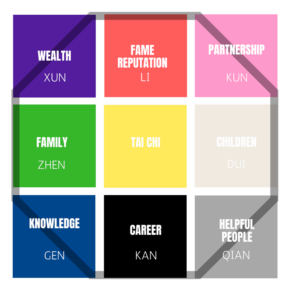
Bagua colors
Mirrors
You can use mirrors strategically when you might not otherwise be able to follow feng shui principles. For example, says Carrano, if you must set up your desk with your back to the doorway, you can use a mirror that provides a view behind you, so you can “watch your back.”
The Bagua Areas
The easiest way to incorporate the bagua in your life is to identify one to three areas that need the most attention. Do not attempt to work on all areas at once. To strengthen your energy or improve flow in those areas, incorporate feng shui suggestions in that particular area.

Feng Shui Bagua areas
- Family (Zhen)
- Wealth (Xun)
- Health (Tai Qi)
- Helpful People (Qian)
- Children (Dui)
- Knowledge (Gen)
- Fame (Li)
- Career (Kan)
- Partnerships (Kun)
5 elements
The five elements—earth, metal, water, wood, and fire—come from the Taoist tradition. The elements are five interrelated phases in life that work together to create a complete system. Typically, the practice of feng shui works to balance these five facets in your home and each of your life areas or bagua.
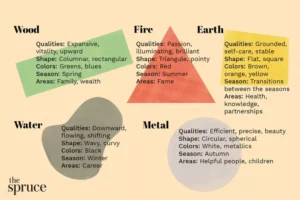
The 5 elements
Incorporation of 5 elements at home
To incorporate the elements in your life and your home, you have to define where you want to focus your energy. Much like the bagua, you choose the one to three areas of your life you want to improve. Then, you strengthen your energy and your home’s energy by adding the suggested colors or shapes in that room.
Illustration
For example, your bagua shows that your bedroom aligns with your overall wellness and the place where you rejuvenate. It ties into the earth element. Consider ways to incorporate earth tones, ceramic or clay pottery, stones, or crystals in that room. After you have made improvements there, focus on a couple of other rooms or areas of your life. Look at the corresponding elements in those rooms and welcome that positive change into your life by adding those elements. The intent is to bring positive energy to those rooms, those areas of your life, and, ultimately, your entire home.
Earth
Qualities: Grounded, self-care, stable
Shape: Flat, square
Colors: Brown, orange, yellow
Season: Transitions between the seasons
Areas: Wellness, knowledge, partnerships
Metal
Qualities: Efficient, precise, beauty
Shape: Circular, spherical
Colors: White, metallics
Season: Autumn
Areas: Helpful people, children
Water
Qualities: Downward, flowing, shifting
Shape: Wavy, curvy
Colors: Black
Season: Winter
Area: Career
Wood
Qualities: Expansive, vitality, upward
Shape: Columnar, rectangular
Colors: Green, blues
Season: Spring
Areas: Family, wealth
Fire
Qualities: Passion, illuminating, brilliant
Shape: Triangle, pointy
Colors: Red
Season: Summer
Area: Fame
Reference

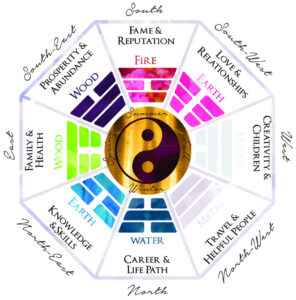
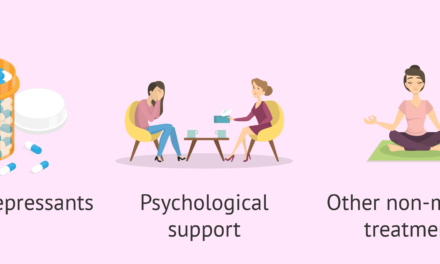









Very nice post. I just stumbled upon your blog and wanted to say that I’ve really enjoyed browsing your blog posts. In any case I’ll be subscribing to your feed and I hope you write again soon!